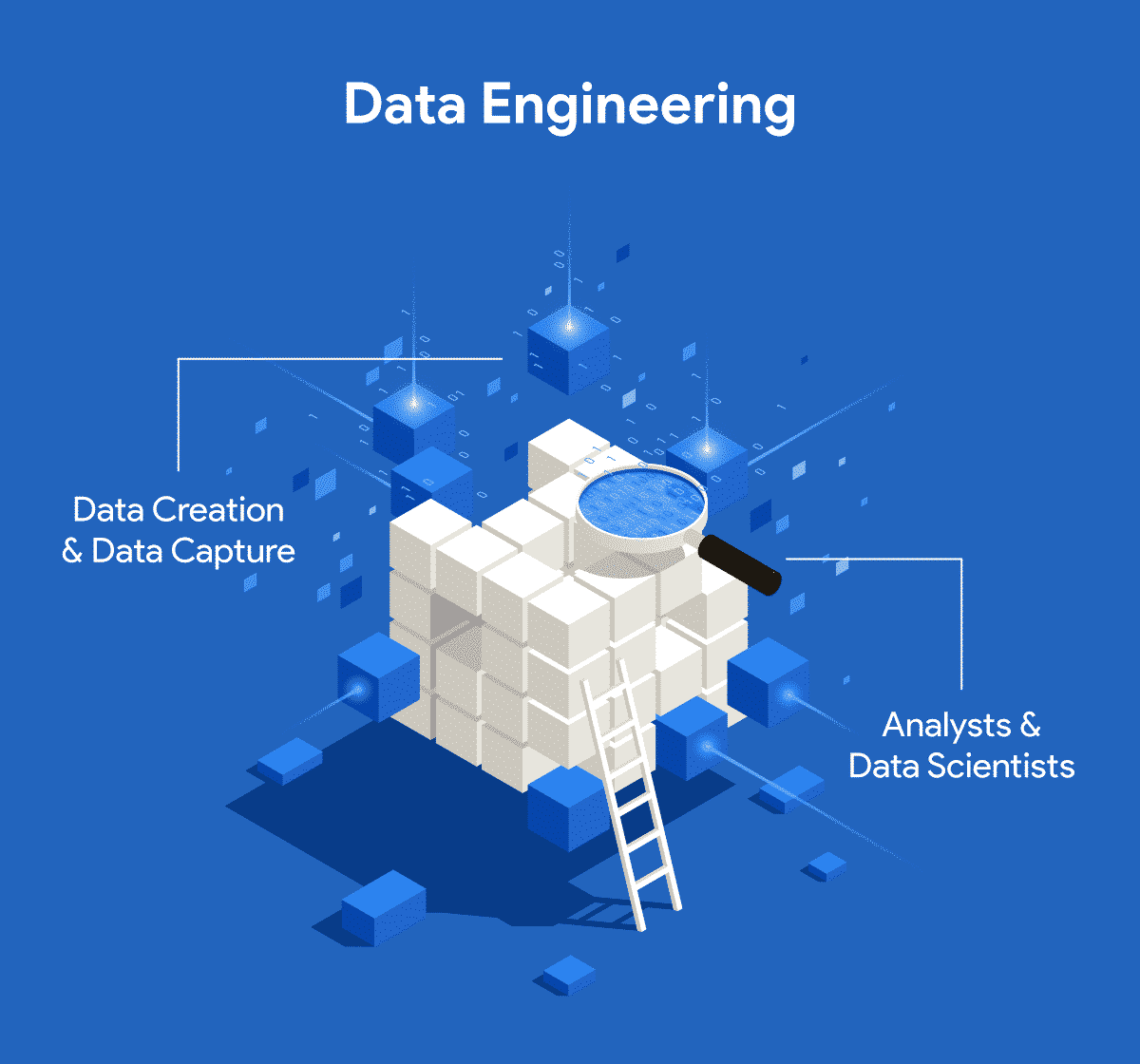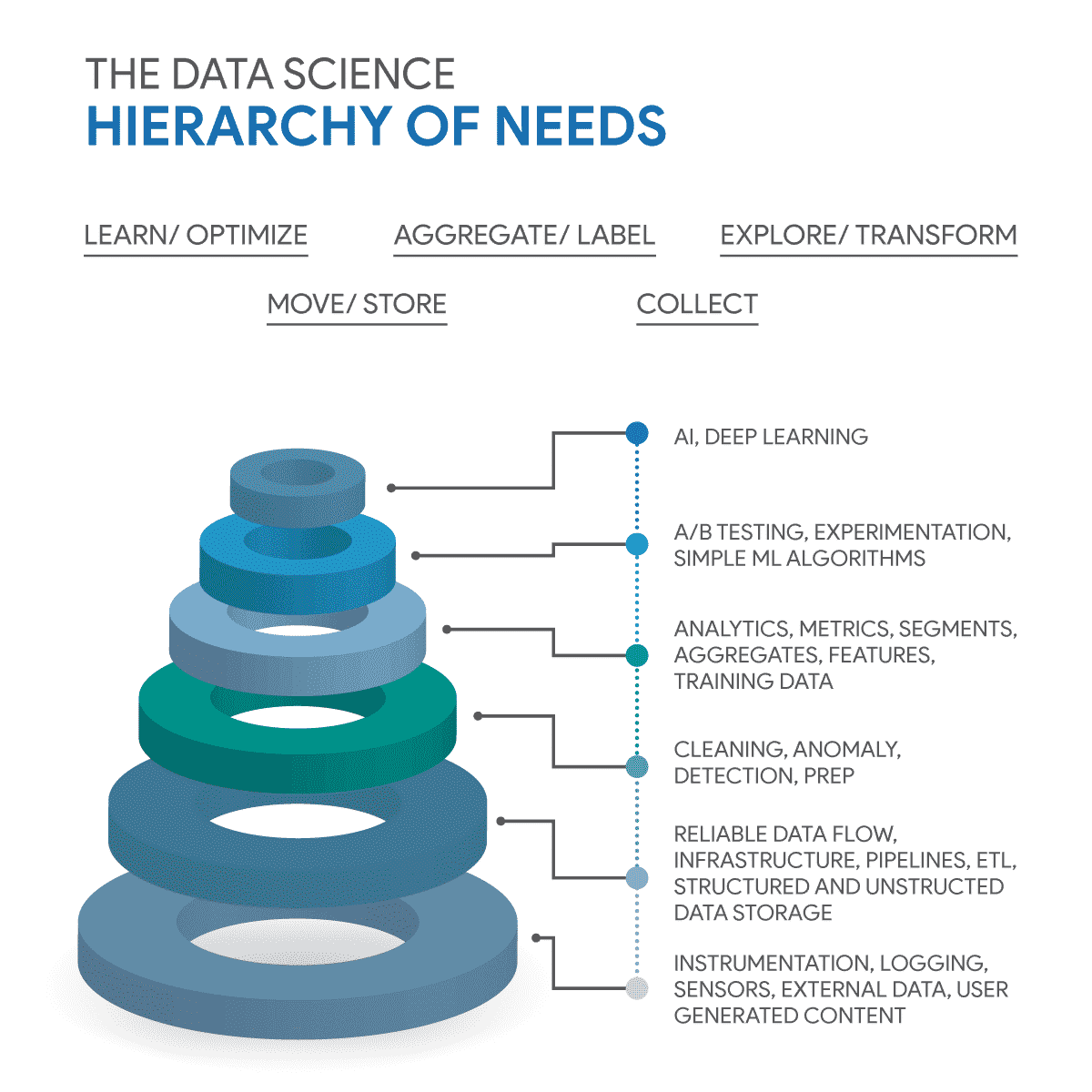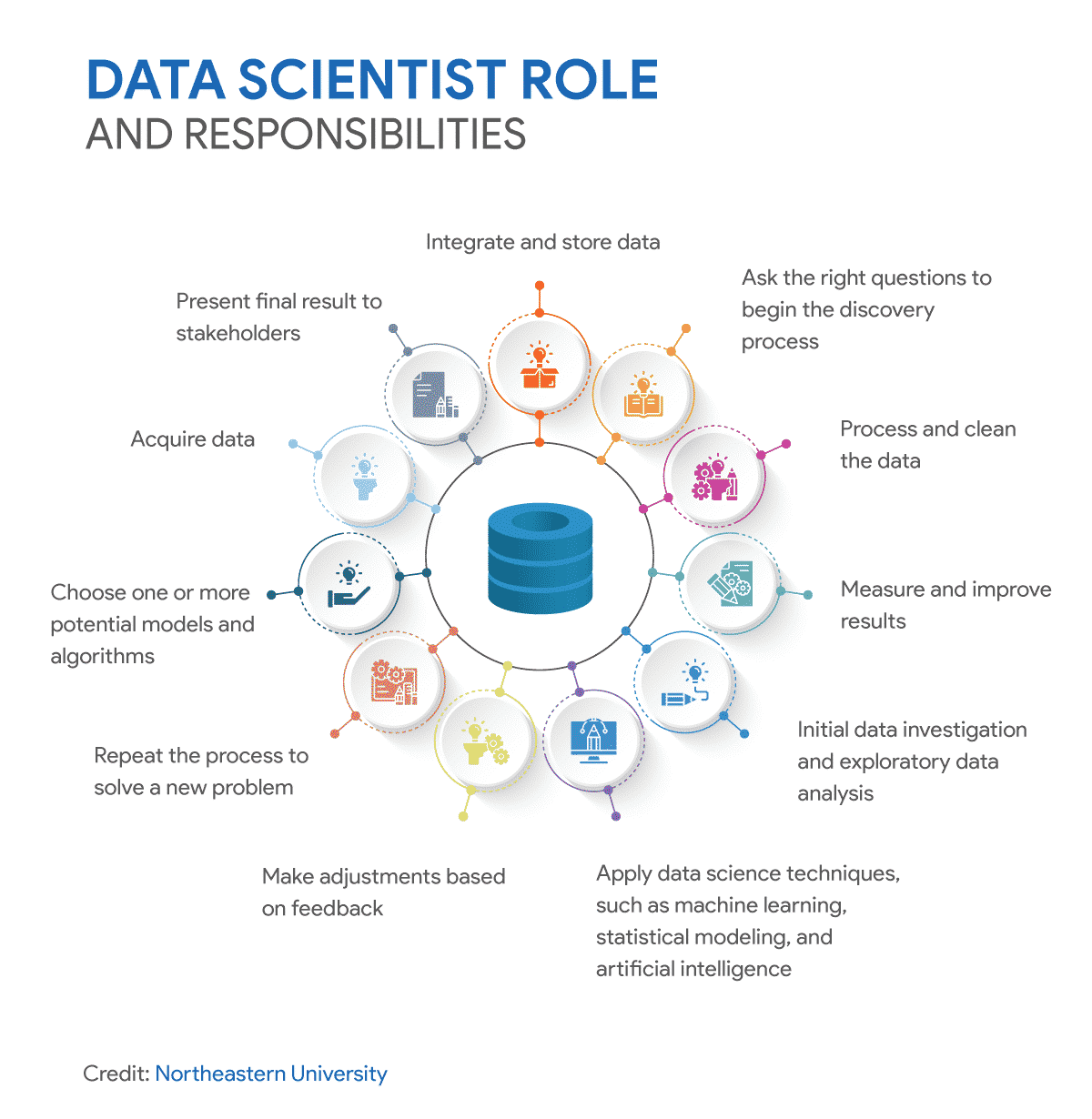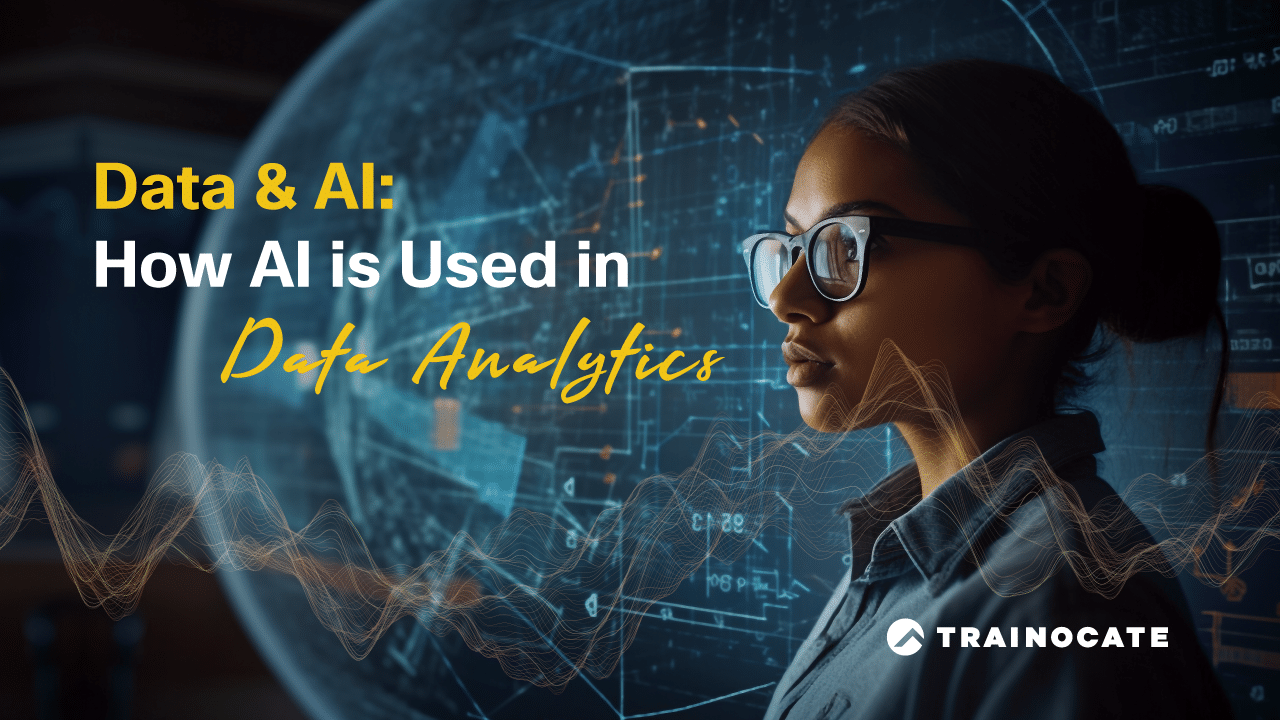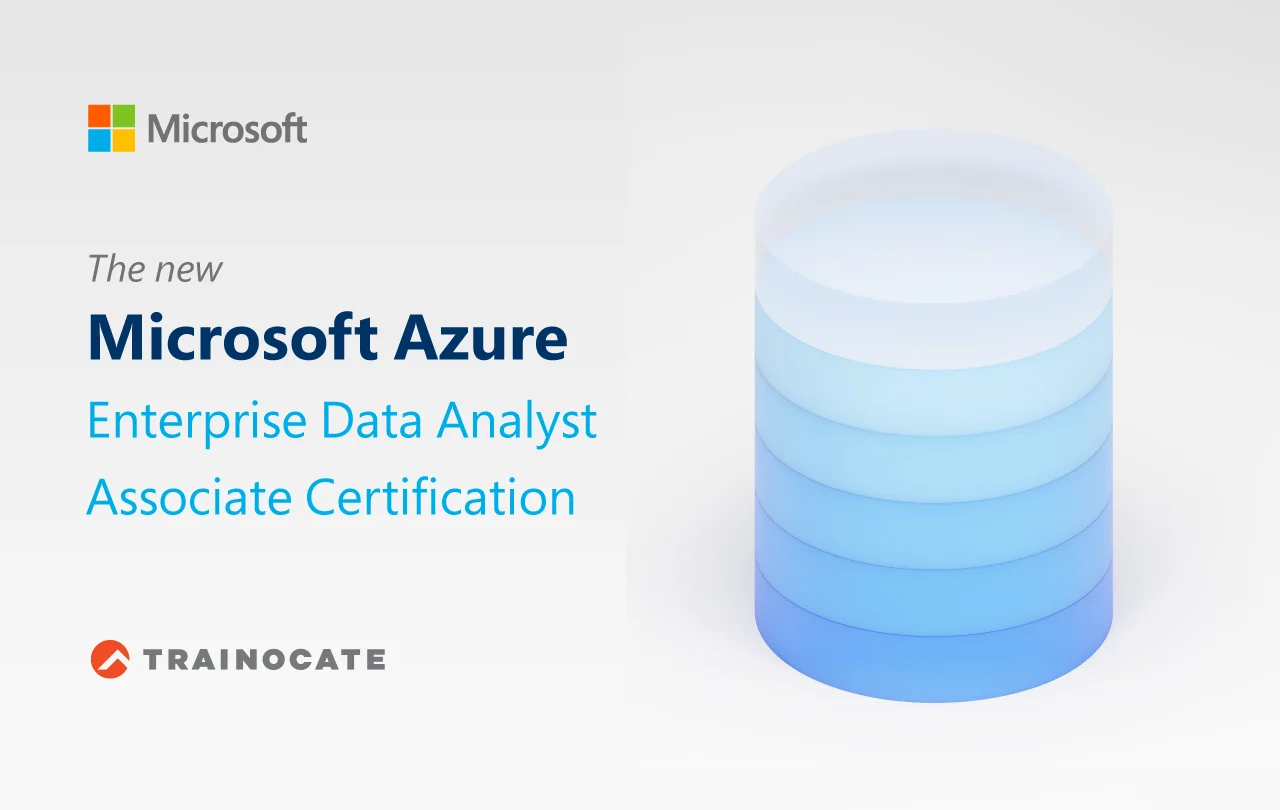Data Science vs Data Engineering – What is the difference?
Data Science vs Data Engineering – What is the difference?
Data is everywhere. In everything.
With the rising usage of technological devices – your smartphones, smart vehicles, appliances, and so on, information is constantly fed into the databases constantly. Everything we touch, hold, see, hear is generating data which is why the field of data science, analytics and management has become pivotal across various business domains.
What’s even more interesting is that data is no longer restricted to just technologically driven companies. Businesses as diverse as hotels, product management, education, food and drinks are now using data to enhance and diversify marketing strategies, improve customer experience, get a grasp on business trends or just collect insights on user data. On a similar note, we have also noticed the stark jump in businesses utilizing data to make business decisions, often adopting the motto of – data-driven decision making.
“Data has also become the foundation for all advanced analytics and machine learning and is one of the most strategic assets a company can have. Advances in data science and prebuilt AI services put that world within reach for every organization on the planet.”
-Microsoft
According to an article by Forbes, we are said to produce 2.5 quintillion bytes of data each day at our current rate, with the rate only accelerating with the growth of the Internet of Things (IoT). Over the last few years, 90 per cent of the data in the world was generated.
But with so many articles, podcasts, YouTube videos, research papers about data strategies, the more we seem to get confused. What is data science? What is data engineering? What are the differences between both? This article is aimed to shed light on the most basic terminology and concepts between data analytics and science. Before we start on the differences let’s sew a thread down the middle of both the concepts first. What makes them similar is that essentially – Data Scientist and Data Engineer are part of the same team seeking to transform raw data into actionable business insights.
Data Engineering
“Data” engineers design and build pipelines that transform and transport data into a format wherein, by the time it reaches the Data Scientists or other end users, it is in a highly usable state. These pipelines must take data from many disparate sources and collect them into a single warehouse that represents the data uniformly as a single source of truth.
So what does a day in the life of a Data Engineer look like?
A data engineer is responsible for the development, testing, and maintenance of data pipelines and architectures, which the data scientist uses for analysis. The data engineer does the legwork to help the data scientist provide accurate metrics.
Data Engineer’s skills:
- Programming
- Distributed systems
- System architecture
- Database design and configuration
- Interface and sensor configuration
.
Data Science
Let’s start with a fun fact. Data Scientist was voted to be the hottest job of the 21st century.
The field focuses on the extraction of important and meaningful patterns as well as insights from large datasets. This is usually performed through leveraging on scientific tools, methods and algorithms. Some of the main elements of Data Science include Big Data and Machine Learning. Data Science is also a broad field with applications in just about every industry. Organizations have the ability to collect massive amounts of data, and they need the right people and technology to ensure the data is in a highly usable state by the time it reaches the data scientists and analysts.
So what does a day in the life of a Data Scientist look like?
A data scientist uses data to understand and explain the phenomena around them, and help organizations make better decisions.
They possess a high level of technical skills that are at the helm of building complex quantitative algorithms to help organize and synthesize substantial amounts of information utilized for riposte and steer strategies in an organization. This is also associated with the experience in communications and leadership in delivering tangible results to stakeholders across the business.
There is an increasing demand for this job role as data-driven decisions takes centre stage within the business.
Data Scientists’ skills:
- Programming
- Cloud computing
- Data wrangling
- Database management
- Data visualization
- Probability & statistics
- Multivariate calculus & linear algebra
- Machine learning & deep learning
So what IS the difference?
Succinctly put, data engineers, just as their job title states – are focused on engineering or building and maintaining data infrastructures. Data scientists, on the other hand, are responsible for tackling the data and interpreting them. Data scientists typically come from technical backgrounds such as computer science, statistics, and mathematics.
Ready to let data help you progress your business forward? Explore our data courses >
GCPDE: Data Engineering on Google Cloud Platform
Get an introduction to designing data processing systems, building end-to-end data pipelines, and analyzing data. You’ll learn how to lift and shift Hadoop workloads using Dataproc, process batch and streaming data on Dataflow, manage data pipelines with Data Fusion and Cloud Composer, and more.
| Code | Course Title | Days | Fees (RM) | Feb | Mar | Apr |
|---|---|---|---|---|---|---|
| GCPDE | Data Engineering on Google Cloud Platform | 4 | RM9,600 | 15-18 | 22-25 | 26-29 |
AWS-PDSASM: Practical Data Science with Amazon SageMaker
Machine learning for every data scientist and developer.
Amazon SageMaker helps data scientists and developers to prepare, build, train, and deploy high-quality machine learning models quickly by bringing together a broad set of capabilities purpose-built for machine learning.
Accelerate innovation with purpose-built tools for every step of ML development and learn how to solve real-world use cases with machine learning using Amazon SageMaker in this AWS training course.
| Code | Course Title | Days | Fees (RM) | Dates/ Months |
|---|---|---|---|---|
| AWS-PDSASM | Practical Data Science with Amazon SageMaker | 1 | RM1,800 | Available Upon Request |
DP-203T00: Data Engineering on Microsoft Azure
In today’s fast-paced business environment, agility requires seamless data collaboration across the organization—and data engineers are key to an organization’s success.
These professionals know that cloud analytics is a critical first step to resilient business transformation, and they spend their days unlocking data and putting it to work for key insights and ground-breaking value. If you have these skills and want to prove them, check out this certification course.
Many organizations today have petabytes of data, and analytics and AI play pivotal roles in putting this data to work—as do data engineers. These professionals work with data from many sources, and they know how to do this quickly and securely to deliver cost savings, new insights, improved business processes, and ground-breaking value. Ready to prove your worth to your team—and to current and future employers? Roll up your sleeves, and get started earning your Azure Data Engineer certification.
| Code | Course Title | Days | Fees (RM) | Mar | May |
|---|---|---|---|---|---|
| DP-203T00 | Data Engineering on Microsoft Azure | 4 | RM3,000 | 28-31 | 23-26 |
